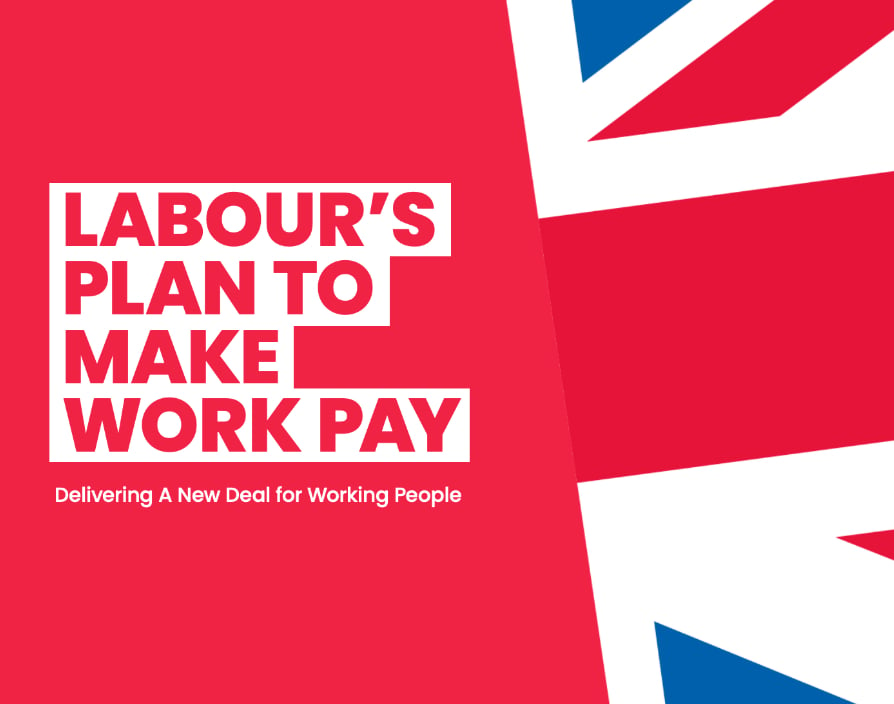The Labour Party’s ‘Make Work Pay’ initiative outlines several significant changes to employment law aimed at improving the lives of working people in the UK, where they had key proposals around a genuine living wage, secure work, trade union rights, a ban on zero hour contracts and ending fire and rehire.
Some of these manifesto promises were implemented into the recent King’s Speech which specifically aimed to improve employment conditions by banning exploitative practices and enhancing workers’ rights. Specifically:
Banning exploitative practices
Elimination of zero-hour contracts, ensuring workers have contracts that reflect their regular hours. Ending ‘fire and rehire’ practices by reforming laws for better worker protections.
Enhanced employment rights
Parental leave, sick pay and protection from unfair dismissal available from day one of employment. Strengthened statutory sick pay by removing the lower earnings limit and the waiting period. Making flexible working the default from day one for all workers.
Specific protections
Protecting new mothers from dismissal for six months post-return to work. Establishing a fair work agency to enforce workplace rights.
Fair pay agreements
Introducing a fair pay agreement in the adult social care sector and evaluating its application to other sectors. Reinstating the School Support Staff Negotiating Body for fair pay rates and career progression.
Trade union legislation
Updating laws to facilitate good faith negotiation and simplifying statutory recognition processes for unions.
The justification by Labour on the above provisions is not just an ‘ideological’ agenda, but one based on their approach to the economy. Referenced in the King’s speech, they state that the UK has seen a rise in insecure forms of work, such as zero-hour contracts. This is affecting over one million people and extending worker protections from day one is expected to encourage job switching, leading to higher wages and productivity. Despite high employment, the UK has faced slow productivity growth, as well as a flat real wage growth, since the 2008 financial crisis and the Bill aims to ensure industrial relations are based on good faith negotiation, implementing a genuine living wage, and addressing long-term sickness and gender pay gap issues.
What will be the impact of these reforms to labour law?
According to the CIPD’s research, the most common reason employers use zero-hour contracts is to provide them with the flexibility to manage fluctuations in demand, with nearly two-thirds of organisations citing this. This was particularly prevalent in the ‘hospitality and entertainment’ sectors where nearly 50% of employers utilised this form of contractual arrangement. It’s also worth nothing that four-fifths of zero-hour contract employees were satisfied with their contracts. Therefore, banning these types of contracts as well as ending the use of ‘fire and rehire’ will be difficult, as the majority of zero-hour contracted workers are satisfied with their arrangement and traditionally, those who have been ‘fired and rehired’ accept this due to the short-term benefits. We saw this with the P&O sacking scandal, where 785 workers out of 786 accepted settlements, despite the company admitting they broke the law.
Introducing protections from day one of employment is a new concept, as these have traditionally flipped from one year to two years depending on which government has been in power at the time. This will obviously have an impact on employers. But, not as big an impact as maybe perceived, as workers (and job applicants) have been protected against discrimination as soon as the job has been created. There is also the issue around probationary periods, which allow employers to follow less stringent procedures for dismissing employees.
One of the biggest impacts on businesses may be the focus around trade unions, where Labour wants to update union legislation so that “it is fit for a modern economy,removing unnecessary restrictions on trade union activity.” This includes the previous government’s approach to minimum service levels – and ensuring industrial relations are based around good faith negotiation and bargaining.
The previous Conservative government introduced various laws to ‘curb’ trade union activity, with the removal of some of these restricted laws and the increase in union involvement within business, this could result in further industrial action as well as an impact on productivity. It could also have a positive affect, whereby companies work in conjunction with unions so that ‘good workplace practices’ are achieved through collective agreement.
Notable Omissions
While some of Labour’s high-profile manifesto commitments were included in the King’s Speech, others were notably absent. These include:
- The proposal of a single worker status, creating a two-tier system where individuals are classified as either workers or genuinely self-employed
- The pledge to strengthen redundancy rights by removing employers’ ability to define separate establishments within their business, thereby making it easier and more frequent to trigger the duty to collectively consult
- A plan to grant workers the right to ‘switch off’ and disconnect from employer contact outside of working hours
The absence of these items from the King’s Speech does not imply that Labour has abandoned them. It is possible that they are not currently a priority due to their complexity, and future consultations may be expected.
If successful, Labour plans to implement these changes within the party’s first 100 days of governing, around October 2024. There are simple and quick ways for Labour to implement these changes, such as granting employees ‘day one’ rights to protect from unfair dismissal, by passing a statutory instrument using the existing powers in the Employment Rights Act 1996 (ERA). This approach removes the requirement for any qualifying period, eliminating the need for primary legislation to be drafted and passed through Parliament. However, with Parliament in recess for most of August and September 2024, this may not be feasible for most of these changes
Employers can begin preparing for substantial changes in these areas by starting to futureproof their business through updating contracts and policies, as well as rewriting handbooks to incorporate the upcoming changes, especially those affecting day-one rights.
Also, businesses should audit processes to ensure they are fit for purpose, with particular attention to the clarity and effective implementation of probationary procedures. This is crucial given that protection from unfair dismissal will become a day-one right.
This preparation will be time-consuming and potentially costly, especially if not done correctly. But, with the possibility of an employment tribunal being accessed from day one of employment, this will lead to better employment relations as well as saving on defending a costly tribunal case.
Share via:









































